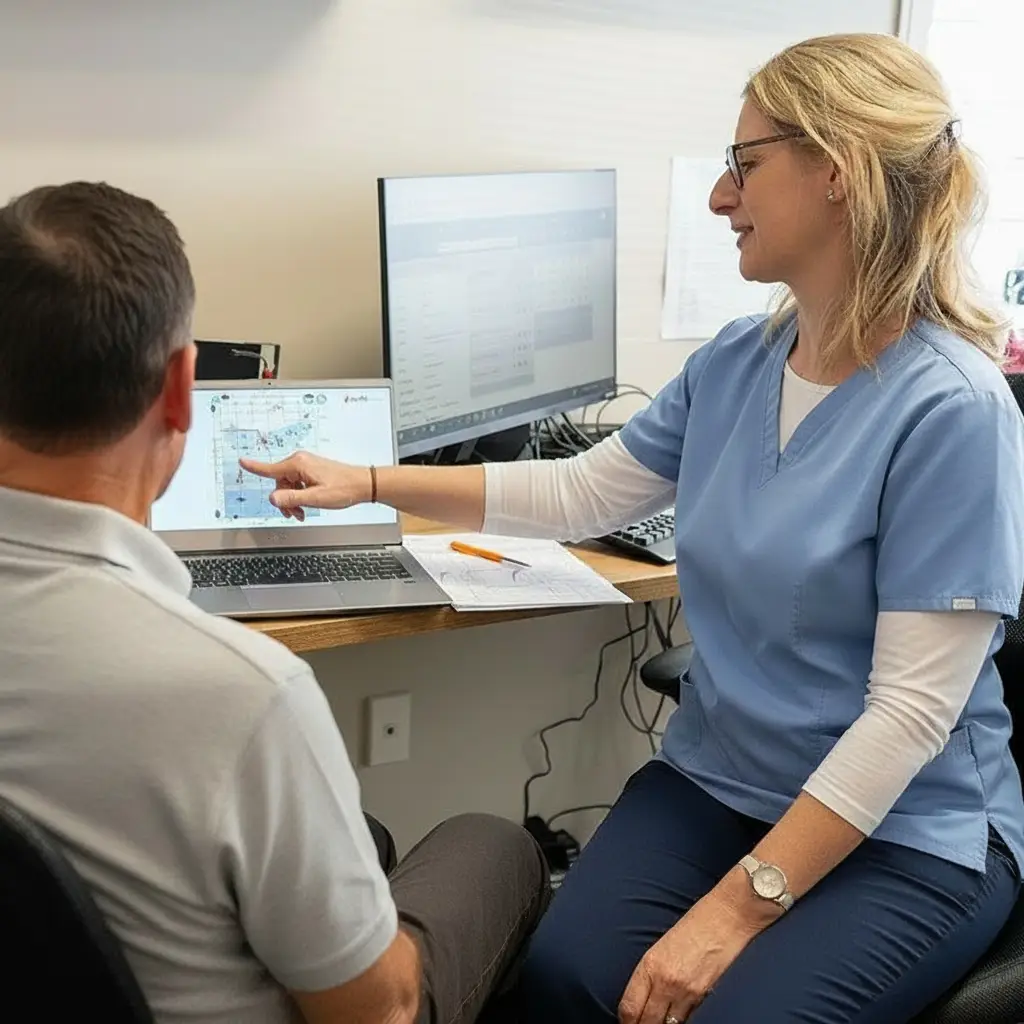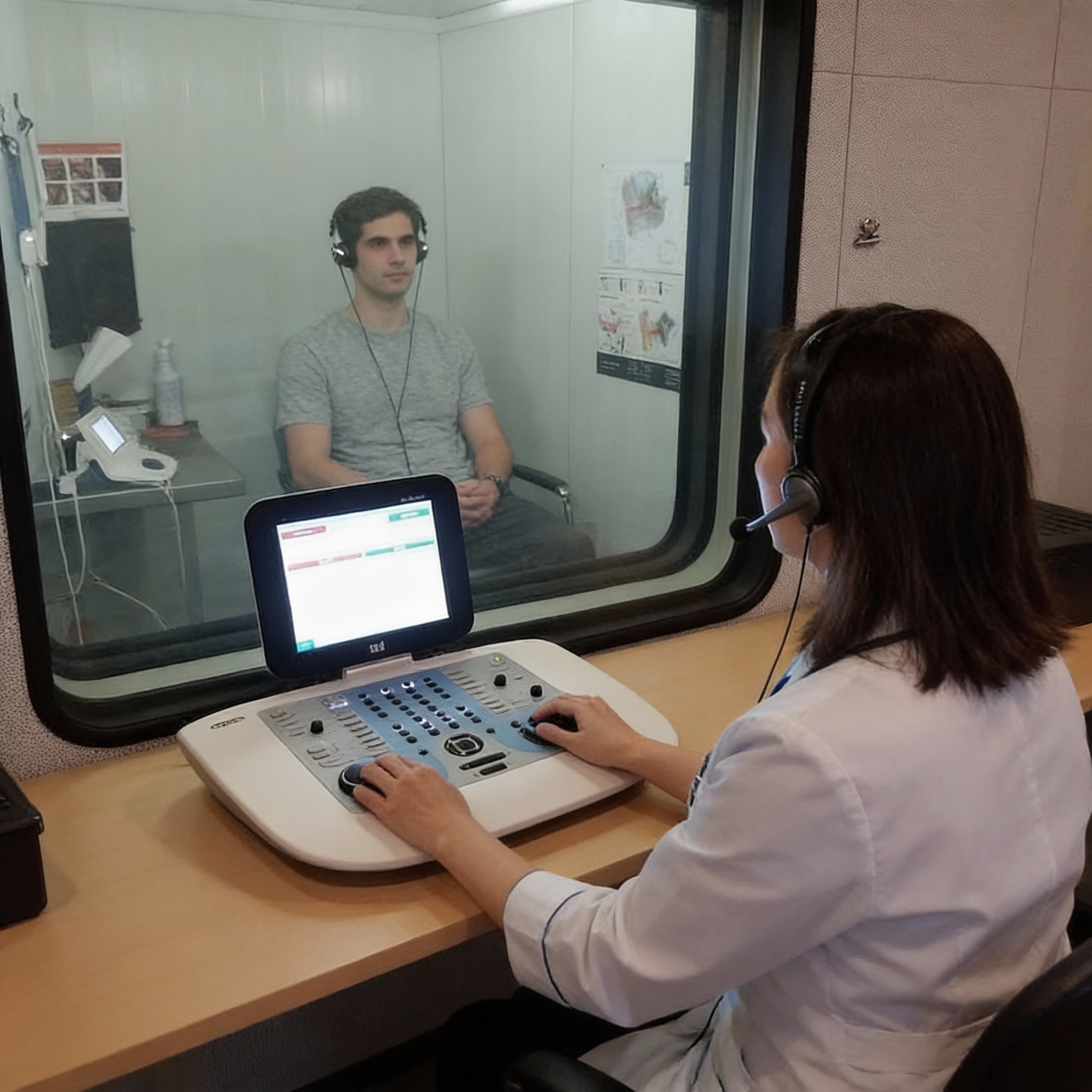A Clear Guide to Vestibular Paroxysmia
Targeted Therapy for Vestibular Paroxysmia
Brief dizzy bursts or unsteadiness? Vestibular paroxysmia is a treatable nerve irritation disorder, not uncommon and rarely serious. At Harley AVM, our team provides effective control. Seek urgent AVM evaluation for severe, unrelenting headache, sudden weakness, vision loss, speech problems, or seizures. These symptoms require immediate care.
Comprehensive Care for Hearing, Vertigo & Balance
Comprehensive Care for Hearing, Vertigo & Balance
Altered Sound Tolerance
An Overview of Vestibular Paroxysmia
Vestibular paroxysmia is a neurological balance condition characterised by very brief, repeated episodes of dizziness or vertigo that occur suddenly and resolve within seconds or minutes. Attacks may happen many times a day and are often triggered by head movement, changes in posture, or even without an obvious cause.
The condition is thought to result from irritation or compression of the vestibular nerve, often by a nearby blood vessel. This abnormal nerve signalling disrupts balance information sent to the brain. Because episodes are short and tests may appear normal between attacks, vestibular paroxysmia is frequently overlooked. Accurate recognition relies on identifying the distinctive pattern of frequent, brief vertigo spells to guide appropriate management.
Pinpointing the Cause
Diagnosing Vestibular Paroxysmia
When to Get Checked
You should get assessed if you experience repeated, brief episodes of vertigo that occur many times a day, especially if they start without warning or are triggered by small head movements. Increasing frequency, impact on daily activities, or uncertainty about the cause should prompt audiovestibular review.
You should seek urgent assessment if episodes occur with sudden hearing loss, ongoing imbalance between attacks, severe headache, facial weakness, numbness, visual disturbance, or other neurological symptoms. Early evaluation helps distinguish vestibular paroxysmia from other causes and ensures timely, appropriate care.

How We Assess Vestibular Paroxysmia
At Harley Audiovestibular Clinic, our senior audiovestibular clinician begins the evaluation by taking your detailed history and mapping brief vertigo attacks, triggers, tinnitus, and sensory symptoms to establish vestibular paroxysmia patterns. We dedicate unhurried time with our consultants to ensure a thorough understanding of your unique experience.
We continue with neuro-otological tests, MRI if indicated, and response trials to pinpoint the source of nerve irritation. Our senior clinicians collaborate to interpret these for the utmost accuracy. This precise pathway differentiates us, crafting personalised treatment plans that control episodes and restore balance swiftly. At Harley AVM, we provide empathetic guidance every step. Our strategies empower lasting stability and confidence.

Major Insurance Providers Accepted
DIAGNOSTIC TESTS
Specialist Tests to Assess Hearing, Balance and Inner Ear Health
Harley Street Specialists in Hearing, Dizziness & Balance
Specialist Care for Vestibular Paroxysmia
Every Vestibular Paroxysmia case is different. Your consultant will create a tailored plan to address your specific symptoms and lifestyle – when it started, how it affects your day, and which tests and treatments are right for you.